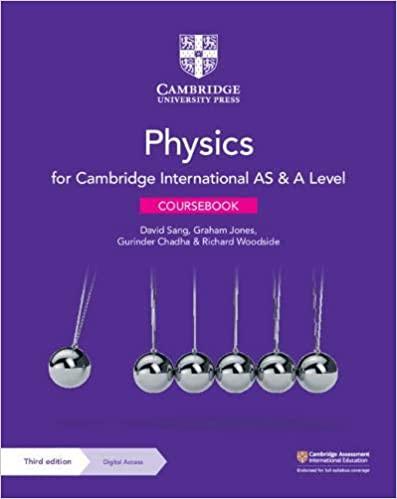a. A quark is a fundamental particle but a neutron is not. Explain what this statement means.
Question:
a. A quark is a fundamental particle but a neutron is not. Explain what this statement means.
b. A proton and a neutron each contain three quarks, either up or down quarks.
i. Copy and complete the table to show the charge on a proton and a neutron and the quarks that they contain.

ii. Using information from your table, suggest why some quarks must have a positive charge and some quarks a negative charge.
c. State what interaction is responsible for holding the nucleus together.
d. When a neutron decays it produces an electron and two other particles.
Copy and complete the decay equation for a neutron.
01 n → ...........................
e. The electron and the neutron belong to different groups of particles.
Copy and complete the table to show the group of particles to which the electron and neutron belong and state the name of another member of each group.

Step by Step Answer:

Cambridge International AS And A Level Physics Coursebook
ISBN: 9781108859035
3rd Edition
Authors: David Sang, Graham Jones, Gurinder Chadha, Richard Woodside




